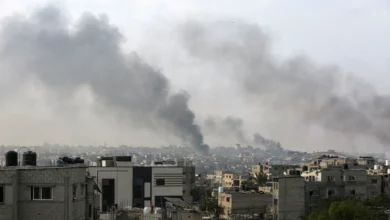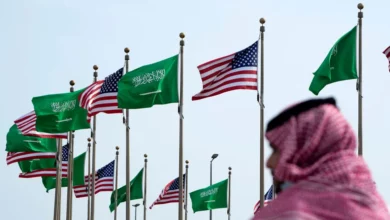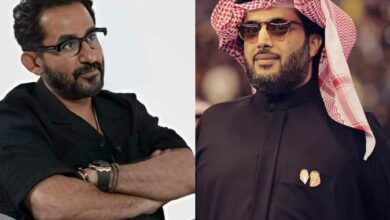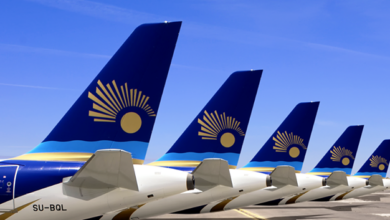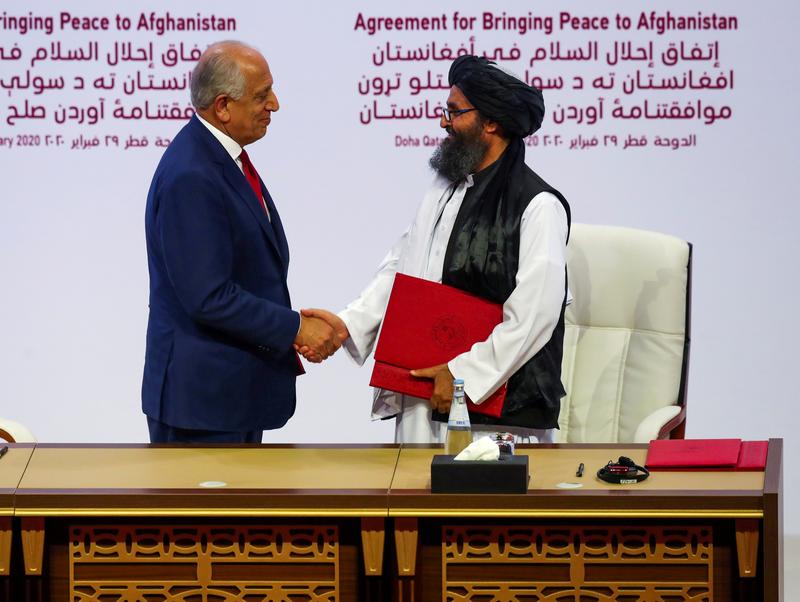
DOHA (Reuters) – Afghan government representatives and Taliban insurgents gathered on Saturday for historic peace talks aimed at ending two decades of war that has killed tens of thousands of combatants and civilians.
“The choice of your political system is yours to make,” US Secretary of State Mike Pompeo told the two sides at the opening ceremony for the talks in the Qatari capital Doha.
The talks, which are scheduled to commence on Sunday, will require hard work and sacrifice, but through them an endurable peace is possible, Pompeo said of the 19-year war, which has vexed three US presidents.
The head of Afghanistan’s peace council, Abdullah Abdullah, said that if the two sides join hands “and honestly work for peace, the current ongoing misery in the country will end.”
Sheikh Mohammed bin Abdulrahman Al Thani, foreign minister of host Qatar, said the long-warring parties “must make the decisive decision in line with the current challenges and rise above all form of division… by reaching an agreement on the basis of no victor and no vanquished.
Officials, diplomats and analysts say that although getting both sides to the negotiating table was an achievement, this does not mean the path to peace will be easy.
“The negotiations will have to tackle a range of profound questions about the kind of country Afghans want,” Deborah Lyons, the United Nations special representative for Afghanistan, told the UN Security Council this month.
US Secretary of State says up to Afghans to determine political system during peace talks
The opening ceremony comes one day after the 19th anniversary of the 9/11 attacks on the United States that triggered its military involvement in Afghanistan.
US forces intervened in Afghanistan on the orders of President George W. Bush a month after the attacks to hunt down their mastermind, Osama bin Laden, a Saudi who had been given sanctuary by the country’s radical Islamist Taliban rulers. US forces initially offered mainly air support to the Taliban’s local enemies.
Although the Taliban regime was quickly toppled, they regrouped and have since waged an insurgency that has sucked in Afghanistan’s neighbors and troops from dozens of countries, including NATO forces.
Negotiations to broker a comprehensive peace deal were envisaged in a troop withdrawal pact signed between the United States and the Taliban in February. After months of delay, a dispute over the Taliban’s demand for the release of 5,000 prisoners was resolved this week.
Ahead of the US presidential election in November, President Donald Trump is looking to show progress in his pledge to end US involvement and pull out most of the foreign forces stationed in Afghanistan.
The United States has reduced its troop levels and by November is expected to have fewer than 5,000 soldiers in Afghanistan, down from about 13,000 when the US-Taliban deal was signed. Since 2001, more than 2,300 US troops and about 450 British soldiers have been killed in Afghanistan.
A European diplomat in Kabul said that a ceasefire – which the Taliban have so far rejected – should top the talks’ agenda.
“The Taliban leaders will have to stop fighters from attacking Afghan forces and civilians, violence continues to degrade the atmosphere and potentially derail negotiations,” the diplomat said.
How to include the Taliban, who reject the legitimacy of the Western-backed Afghan government, in any governing arrangement and how to safeguard the rights of women and minorities who suffered under Taliban rule are big challenges, experts said.
Nevertheless many diplomats, victims of violence and members of civil society say negotiations are the only realistic way to bring an end to a conflict that has killed more than 100,000 civilians and hampered Afghanistan’s development, leaving millions in poverty.
“Solutions will not be found on the battlefield, we know this,” Lyons said.
Reporting by Kabul, Islamabad and Dubai bureaux; Writing by Charlotte Greenfield; Editing by Angus MacSwan and William Mallard
Image: Zalmay Khalilzad, US envoy for peace in Afghanistan, US Secretary of State Mike Pompeo, Qatari Deputy Prime Minister and Minister of Foreign Affairs Sheikh Mohammed bin Abdulrahman al-Thani and Mutlaq Al-Qahtani, Special Envoy of the Foreign Minister of Qatar are seen before talks between the Afghan government and Taliban insurgents in Doha, Qatar September 12, 2020. REUTERS/Ibraheem al Omari

